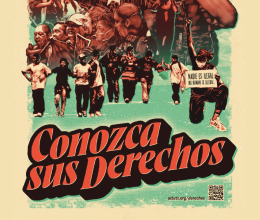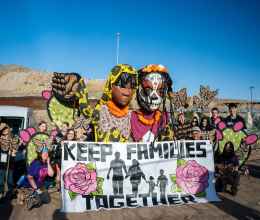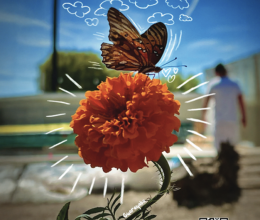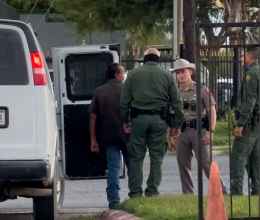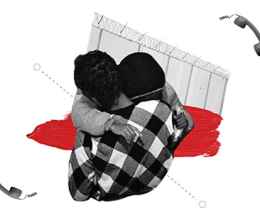
Update May 2021: In the three years since Claudia’s death, the Gómez González family is still desperate to know what happened and why their daughter was killed. In May 2020, we filed a lawsuit on behalf of the family seeking damages from the U.S. government for her wrongful death at the hands of the Border Patrol agent who shot her dead. As of today, the federal government has indicated the ongoing FBI investigation is near completion. But until we have justice for Claudia’s senseless death, we will not stop fighting for her and her family.
Gilberto Gómez first saw the news of his daughter’s death on Facebook. Weeks earlier, Claudia had left her parent’s home in Guatemala’s western highlands to start a life in the United States. Less than three weeks later, she was dead at 20 years old.
“I was frightened for her to make the journey,” he recounted. “But I never could have imagined what would happen.”
Exactly one year ago this week, Claudia was traveling through Rio Bravo, a small town of just under 5,000 people on the outskirts of the Rio Grande, the river that cuts between the United States and Mexico. That day, Claudia was walking along Centeno Lane in Rio Bravo with a few other people.
Claudia and the people she was with came into contact with a U.S. Border Patrol agent in the corner of a vacant lot. Two people from Claudia’s group ran toward the river. Two others ran toward an abandoned mobile home two lots away to hide. Claudia and another person stayed in the vacant lot.
After Claudia took a step, the agent then raised his gun and shot her in the head.
Following the shooting, the U.S. government issued a press release stating that a group of migrants had attacked the agent with “blunt objects,” and that Claudia was one of the assailants. Two days later, a video from a local resident who filmed part of the incident went viral on social media. The government then issued a new statement that removed all references to blunt objects and allegations that Claudia had assaulted the CBP agent.
Despite the government’s changing story, here’s what remains clear to this day: Claudia — a young woman of small build who was visibly unarmed — posed no threat to anyone on the day she was shot in the head, certainly not to an armed U.S. law enforcement agent.
She was killed for no reason and her family deserves justice.
For her family, Claudia’s death has only become more difficult to process. “As more time passes, it’s harder,” Gilberto reflected. “We remember her more and we expect that to go on day by day.”
He tries to focus on the better times of Claudia’s short life: her natural aptitude for numbers, how she was proud to have studied accounting, and the way she enjoyed embroidering bright flowers on her younger sisters’ blouses during her free time.
To mark the one year anniversary of Claudia’s death, the Gómez family is holding a novena, a Roman Catholic tradition consisting of special services that take place over nine days. Along with members of their village, they will hold a mass and procession to the hillside cemetery where Claudia is buried to lay a crown of flowers on her tombstone.
They are also pressing for justice in the United States. On May 23, the family filed a legal claim seeking to hold the federal government liable for her death.
By bringing this claim against the U.S. government, Gilberto and his family hope to finally get some answers and closure. “I want justice more than anything. I need to make sure she is not forgotten,” he said.
